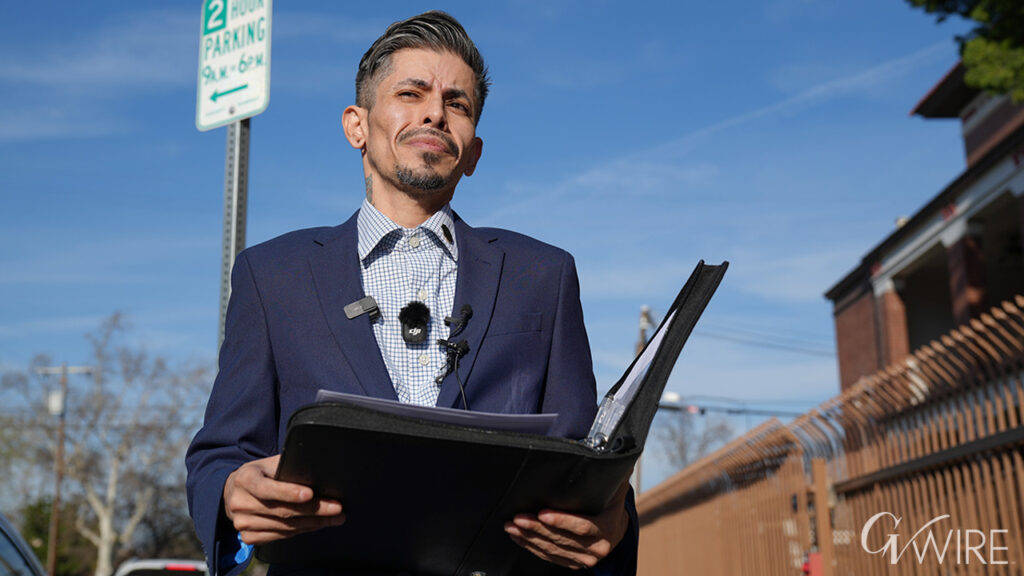Share
MEXICO CITY — Under threat of crippling U.S. tariffs, Mexico said Friday it had reduced the flow of migrants arriving at its northern border by 56% in three months.
Ebrard is scheduled to meet with U.S. officials Tuesday at the White House to review the progress.
“We’re showing that the strategy that Mexico put forward has been successful,” Ebrard said. “I don’t expect a tariff threat Tuesday because it wouldn’t make sense.”
Using U.S. Customs and Border Protection data, Ebrard said the number of migrants apprehended at the U.S.-Mexico border in August was 63,989, down from 144,266 in May. Ebrard’s numbers include those who presented themselves at U.S. ports of entry and were deemed inadmissible.
Mexico has reinforced security on its porous southern border and set up checkpoints on highways leading north, deploying 21,600 police and troops across the nation. Ebrard said there had been seven formal complaints of human rights violations involving the National Guard, a relatively low number which he saw as another sign of success.
Mexico Has Agreed With Honduras and El Salvador to Expand a Tree Planting Program
The enforcement has been paired with an incipient economic development plan. Mexico has agreed with Honduras and El Salvador to expand a tree planting program that aims to keep farmers on their land through direct payments and provide them with income-generating fruit and timber trees.
Mexico has committed $60 million to that program and another to create job opportunities for youth.
Some 4,300 Central American migrants are working in Mexico’s version of that program in the south, Ebrard said.
Mexican President Andres Manuel López Obrador, a leftist who took office Dec. 1 promising better treatment of migrants, instead has embraced the fight against migrant smuggling.
In recent weeks, he has seldom mentioned the U.S. pressure and depicts the crackdown on migrants as a struggle to defend Mexican laws. His administration has taken a tough line against hundreds of African migrants waiting in the southern city of Tapachula for transit visas that Mexico no longer hands out.
“We will not budge,” he said after the Africans protested, “because the recent events in Tapachula aim to make Mexico yield and oblige us to give out certificates so migrants can get into the United States. We cannot do that. It isn’t our job.”
He said migrant caravans once tolerated by Mexico were the work of human traffickers, and effectively ended them.
“All of these people who traffic with migrants’ needs for jobs, safety and welfare, they are committing a crime and they will be punished,” López Obrador said last week. “We are already doing this in Mexico, without violating human rights. We are ensuring there isn’t anarchy, disorder.”
Bus and Taxi Drivers Could Lose Their Permits if They Transport Migrants
Migrant-rights activists say López Obrador is simply dressing up the fact that he yielded to Trump’s pressure tactics.
Mexico has raided freight trains that migrants ride north, and pulled thousands off buses and out of the freight compartments of trucks. The government has warned bus and taxi drivers they could lose their permits if they transport migrants.
Activists say that has forced migrants to hike through unpopulated areas to avoid checkpoints, exposing them to greater risk from thieves, muggers and rapists who lie in wait.
Ebrard said Friday that authorities had found 2,186 migrants inside 35 tractor trailers and said that nearly 40% were minors. Ebrard said 357 people had been charged in migrant-smuggling cases.
The Rev. Alejandro Solalinde, who runs a migrant shelter in the southern state of Oaxaca, said Mexico essentially had no choice.
“It was the least worse choice,” Solalinde said of the government’s decision. “Given that Donald Trump is an unstable person, full of surprises, we had to make this deal.”
All of that has left migrants like Jose Bento, a 30-year-old from Congo, feeling like they have been caught in the middle and left in limbo.
“We are in a jail without walls,” said Bento, who has spent four months travelling though South and Central America in a bid to reach the United States. “This is a policy of lies. We are considered as animals.”
[activecampaign form=29]
Categories


















